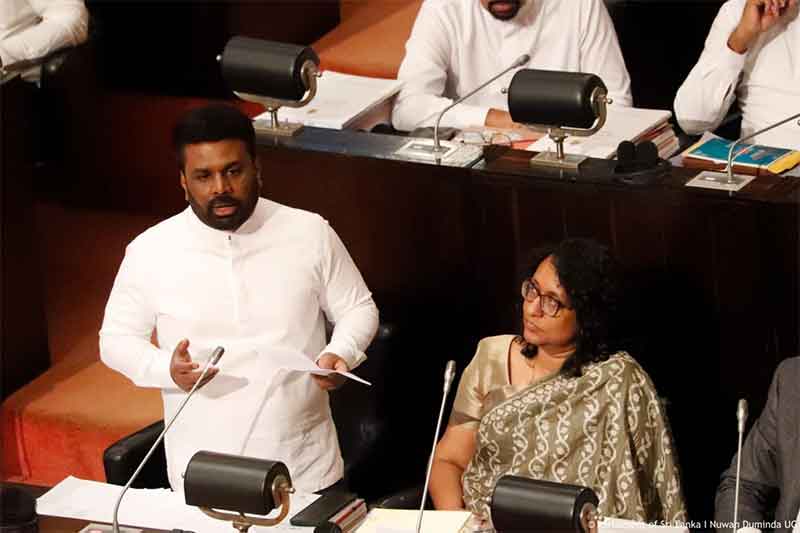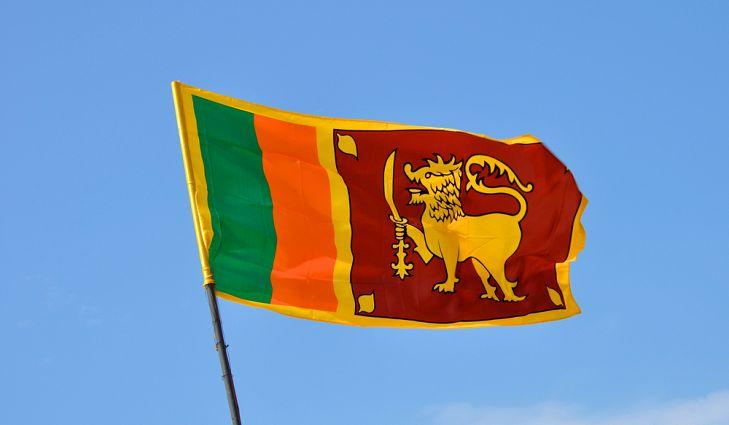
The Iberian Peninsula including Spain, Portugal, and parts of France faced mysterious electricity outages last month. Spain had an extended countywide Blackout–the worst electricity failure in any developed country in modern times.
London’s Heathrow Airport, one of the world’s busiest airports also experienced a power failure and a total shut down over a 24-hour period causing a great deal of chaos in March. A month earlier in February, Sri Lanka too experienced a mysterious island-wide electricity Blackout.
Mystery still surrounds the cause of the electricity outages and economic shut down of counties and transport systems, which experts increasingly suggest may be caused by cyber or other forms of sabotage, rather than oversupply of solar energy. Spain is led by Socialist Prime Minister Pedro Sanchez, a vocal critic of Israel’s genocide in Gaza who had called for recognition of the State of Palestine.
At the time of the February blackout in Sri Lanka an implausible narrative was floated that a monkey had cause the county-wide electricity outage! An Expert Committee later set up to investigate the power outage came up with the claim that an abundance of cheap, renewable Solar power had destabilized the national grid distribution system causing the power failure. Both narratives raised more questions than provided answers.
Some experts have suggested a geopolitical economic angle to claims that an excess of cheap solar power caused Blackouts and county-wide grid instability from Spain to Sri Lanka. They suggest that such claims and ensuring energy policy uncertainty may keep counties dependent on expensive imported fossil fuel (oil, gas and coal), generated electricity and the exorbitantly privileged US dollar. After all, the Saudi oil backed Petrodollar is facing headwinds as the world slowly de-dollarizes at this time. Likewise, the rise of BRICS and China’s Solar panels and Electric Vehicles manufacture may threaten the Oil backed Greenback’s global reserve currency status.
Dependence on Imported Fossil Fuel: Kickbacks and Price Rigging
The Ceylon Electricity Board (CEB), last month asked private individual solar energy suppliers to hold back their supply to the national grid although solar energy is relatively cheap and may contribute to reduce electricity prices compared to expensive imported oil, gas and coal generated electricity. Simultaneously, the CEB called for a whopping 30 percent increase in electricity prices—in lock step with the International Monetary Fund (IMF)” demand that electricity prices be based on cost recovery.
However, the CEB was forced to revise its initial claim of a 30 percent electricity increase down to 18.3 percent last week. The Expert Committee report that an excess or oversupply of relatively cheap Solar power caused the February Blackout due to grid destabilization had contradicted the claim by the Ceylon Electricity Board (CEB), that it had made massive losses this year to explain hence need to increase the cost of electricity by 30 percent ex ante for June-December 2025.
At this time, the question is why raise electricity prices if there was over-supply of renewable Solar as well as Hydropower just as the monsoon breaks? Electricity price increases would spike the cost of living, and affect industry and manufacture and jeopardize the country’s economic recovery. Or, is there a disinformation game in the legacy media that is somehow also related to the International Monetary Fund (IMF) demand that Sri Lanka raise the price of electricity ex ante for ‘cost reflective pricing, and what data is the IMF using?
Sri Lanka which staged a first ever Sovereign Default in 2022, is currently caught in a US dollar Eurobond debt trap and has clearly lost economic sovereignty and policy autonomy to the IMF. Meanwhile, questions arise about the role of the National Peoples Power (NPP) government as the IMF threatens to withhold an Extended Fund Facility loan, seemingly careless of the damage these actions may cause the economy.
Kickbacks and Staged Shortage
While countries like Spain and Sri Lanka with plentiful year round sunshine increasingly have cheap solar power to reduce dependence on expensive imported fossil fuels to generate electricity, some electricity company officials may make lucrative kickbacks from expensive oil, gas and coal import tenders. In the past the Ceylon Electricity Board (CEB) faced questions it supply-demand estimates, data, and electricity pricing formula given the county’s increased renewable solar and hydro power generation capacity from the Public Utilities Commission (PUCSL).
Whatever the case, last week the Ceylon Electricity Board (CEB) Chairman Dr. Tilak Siyambalapitiya tendered his resignation to the Minister of Power and Energy. This was after the CEB’s claims of the need for a whopping 30 percent rise in lock step with the International Monetary Fund’s (IMF) demand for ‘cost based pricing’ of electricity.
The CEB chairman’s resignation came after the need for such a large electricity price increase was challenged given contradictory claims about solar and hydro-power availability. Experts had pointed out that predictions of hydropower scarcity were based on dubious ‘climate disaster’ scenarios of drought that did not materialize.
Hydropower reservoirs according to experts are well stocked at this time. Energy expert Dr. Vidura Ralapanawe has noted that The Ceylon Electricity Board (CEB) is in one of the strongest hydro storage positions in recent memory, but it has mismanaged key hydropower complexes, causing an increase expensive in oil-powered electricity generation and costs.[i] Dr. Ralapanawe had raised serious concerns over CEB’s operational decisions, particularly the skewed use of the Mahaweli and Laxapana hydropower complexes. Moreover, recently the Indian High Commissioner Mr. Santosh Jha spoke optimistically about Sri Lanka exporting electricity to India.
Energy Poverty: 50,000 off the Grid
In contrast to less developed countries in South Asia, Sri Lanka, listed as an Upper Middle Income Country (MIC), by the World Bank in 2019, had universal electricity coverage until recently. However, the CEB’s dramatic increase of prices forced approximately 50,000 households who were unable to pay their electricity bills to disconnect from the national grid in the past year. From this was extrapolated that Sri Lanka’s poverty rate had increased to over 25 percent of the population.
The electricity price rise and disconnections was in the wake of the 2022 Aragalaya chaos and regime change operation to stage Sri Lanka’s first ever Sovereign Default, amid predictions and threats of “famine and 15-hour power cuts” if Sri Lanka did not seek help from the IMF with the rupee in staged freefall. This, although Sri Lanka is a tropical island blessed with Mother Nature’s largess including plentiful rain and sun for two crop rotations to feed itself.
In a recent study the Center for Poverty Analysis (CEPA), used the concept of “energy/ electricity poverty” due to the high rate of electricity disconnections caused by the CEB’s dramatic price increases which it is retrospectively clear were based on flawed Climate Disaster predictions of drought and other miscalculations.
The questionable prediction was that there would be a drought in 2024, which would cause hydropower shortages, and require import of expensive fossil fuel, which required electricity price increase ex ante–necessitated by the IMF’s ‘cost recovery pricing’ demand. The result was 50,000 poor families unable to bear the price increase having their electricity cut.
Arguably, the right to affordable Electricity is a Human Right. It is now clear that the ECB’s dramatic electricity price increase which was based on flawed data and weather predictions caused harm to vulnerable families whose electricity supply was cut by CEB, as noted in a recent discussion on Face the Nation with Energy expert Dr. Vidura Ralapanawe and former PUCSL head, Asoka Abeygunawardana.
Whose data and weather forecasts of sun, rain and hydropower generation did the IMF using? The IMF it seems works closely with selected representatives of CEB Trade Unions that called for dramatic price increases anticipating purchase of imported and expensive oil, gas and coal tenders.
Disinformation, Flawed Data, and the IMF’s ‘Legacy Debt’
With independent experts challenging the CEB’s data and claims of losses and debt numbers, the IMF has come up with the concept of “legacy debt”, to increase electricity prices and to ‘Make the Economy Scream’ again. This at a time when some industries are reeling and factories closing given President Donald Trump’s tariff flip flops.
Some CEB trade union representatives that work closely with the IMF have claimed that the Ceylon Electricity Board incurred massive losses this year (2025) and must raise prices, despite the CEB making significant profits last year. But since the loss figures have been directly and cogently challenged by experts at the Public Utilities Commission (PUCSL) and other independent analysts another narrative was concocted.
The IMF recently claimed that the CEB has a ‘legacy debt’ to pay off citing borrowing from 2015-2019. However, concerns arise on the nature, calculation and accuracy of the purported legacy debt data.Moreover, there little debt Data Security in Sri Lanka, where at the height of the Covid-19 panicdemic the National Medicine’s Regulatory Authority (NMRA) suffered huge data wipes and data manipulation and the Ministry of Health was bankrupted buying injections and PCR test kits.
As the now forgotten Arthur Anderson and Enron accounting scandals showed financial data, debt and derivatives, including ‘legacy debt’ are easily rigged, particularly, in Global South countries where data security is nonexistent. As the recent IMF supervised Eurobond debt restructure, which concealed the name of the bondholders despite calls for transparency regarding who would benefit from the process showed, in an age of Digital Colonialism debt data is an elaborate numbers game.
The executive director of Verite Research, Dr. Nishan de Mel meanwhile had warned recently that “Sri Lanka’s approach to meeting IMF-backed electricity pricing reforms risks clashing with its own regulatory framework due to differing interpretations of what constitutes cost-reflective pricing”.[ii]
Rather than jeopardize the country’s recovery by raising electricity prices to “Make the Economy Scream”, should not the NPP regime in Colombo first analyze and then convert if needed, CEB’s debt to equity?
After all the CEB is owned by the people of Sri Lanka and the GoSL should be able to cancel CEB debt for the greater economic good of the country. However, the IMF’s illegal mission and mandate creep into domestic debt restructuring with long term intent to privatize the energy sector may have for now forestalled the option of effective domestic debt cancellation in the interest of national energy security.
TO BE CONTINUED
[i] https://island.lk/expert-mismanagement-of-ceb-hydro-resources-increases-costly-oil-powered-electricity-generation/
[ii] https://www.themorning.lk/articles/7C5SBBZGZo4X6rjGtUuD
Subscribe to Our Newsletter
Get the latest CounterCurrents updates delivered straight to your inbox.
Dr. Darini Rajasingham-Senanayake is a social and medical anthropologist with research expertise in international development and political economic analysis. She was a member of the International Steering Group on “Southern Perspectives on Reform of the International Development Architecture”















































